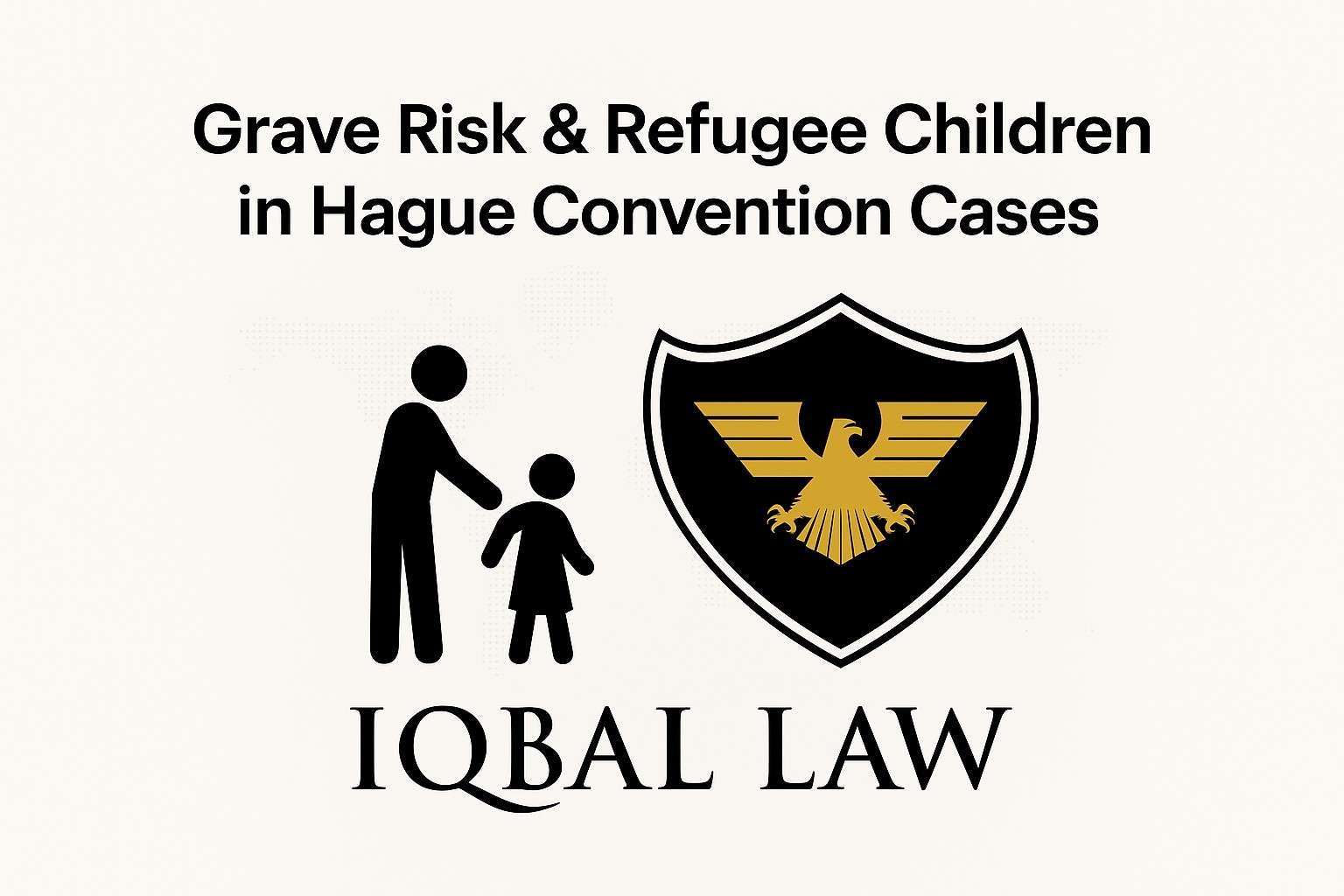
When international child abduction disputes arise, the Hague Convention on the Civil Aspects of International Child Abduction provides the framework for resolving them. However, cases become particularly complex when refugee protection and serious safety concerns for the child are involved. A recent Ontario Court of Appeal decision illustrates this tension and provides important guidance on how Canadian courts should handle these situations.
The Facts of the Case
The case involved a 13-year-old girl, X, who was wrongfully retained in Canada by her mother without the father’s consent. Both mother and child had already been granted refugee status in Canada due to a well-founded fear of persecution by the father and a lack of protection in their home country.
The father applied under the Hague Convention for the child’s return to their country of origin. The mother opposed, arguing that:
- Returning the child would expose her to a grave risk of harm.
- The child strongly objected to returning to her home country.
What Happened at the First Hearing
On May 5, 2025, the Superior Court of Justice ordered the child returned. The judge found that:
- The Article 13(b) exception (grave risk of harm) did not apply.
- The Article 13(2) exception (child’s objection) should be rejected because the child’s views were “influenced” by her mother.
- The refugee determination process was treated with skepticism.
This meant the child would have been forced to return to her home country despite her refugee status and objections.
The Appeal
The decision was appealed, with several parties making submissions:
- Father: Claimed the mother’s allegations were vague and that the child’s objections were not genuine.
- Mother: Argued that the judge failed to respect the refugee finding, ignored the presumption of grave risk, and wrongly dismissed the child’s objections.
- Office of the Children’s Lawyer (OCL): Supported the mother’s position, stating the child’s views were consistent and not improperly influenced.
- Interveners (including UNHCR and CARL): Stressed Canada’s non-refoulement obligations (not sending refugees back to face persecution) and the importance of respecting refugee determinations.
The Legal Issues
The Court of Appeal considered three key questions:
- Did the judge properly apply the rebuttable presumption of grave risk of harm under Article 13(b)?
- Was the child’s objection to return under Article 13(2) properly assessed?
- Do Ontario courts have jurisdiction under section 23 of the Children’s Law Reform Act (CLRA)?
The Court of Appeal’s Decision
The Court of Appeal allowed the appeal and overturned the return order.
- Grave Risk of Harm
- The Court held that the refugee determination creates a rebuttable presumption of grave risk of harm if the child is returned.
- The application judge erred by second-guessing the refugee process and by giving more weight to the father’s expert evidence than the specialized Refugee Protection Division (RPD).
- Since there was no clear evidence rebutting the presumption, the exception under Article 13(b) applied.
- Child’s Objection to Return
- The Court found the child’s views were consistent, independent, and rooted in her fear of violence.
- The application judge wrongly dismissed these objections by assuming they were influenced by the mother.
- Under Article 13(2), the child’s objection carried significant weight.
- Ontario Jurisdiction
- The Court held that under section 23 of the CLRA, Ontario courts do have jurisdiction since the child would face serious harm if removed from Ontario.
Final Orders
- The case was sent back to the Superior Court before a different judge for a full parenting and decision-making determination.
- In the meantime, the mother was granted interim decision-making authority and residence, while the father received video-parenting time, consistent with the child’s preferences.
Why This Case Matters
This decision highlights several important principles for Hague Convention child abduction cases involving refugee children:
- Refugee status matters: Courts must respect refugee determinations and treat them as creating a presumption of grave risk if the child is returned.
- Child’s voice matters: Where a child is mature and expresses clear, consistent objections, those views carry significant weight.
- Ontario jurisdiction: Courts can assume jurisdiction under the CLRA to protect children from serious harm.
Key Takeaway for Parents
If you are involved in an international custody dispute where refugee status or safety concerns are at play, the Canadian courts will carefully weigh the risk of harm and the child’s own views before making a decision. These cases are highly complex, and both the Hague Convention and Canadian refugee law must be considered together.
At Iqbal Law, we represent parents in cross-border child custody disputes and can help you understand your rights under the Hague Convention, the CLRA, and refugee protection laws.
📞 Contact us today to schedule a consultation.